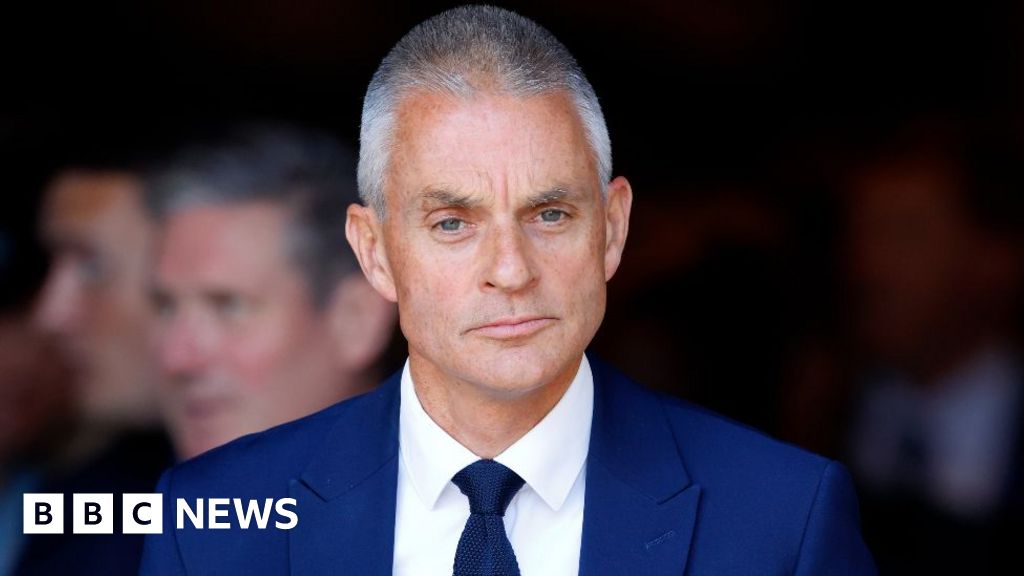The last time the BBC’s director-general and chair appeared before the Culture, Media and Sport committee, the MPs spent around half an hour grilling them about how the corporation could have broadcast a documentary about Gaza without knowing its child narrator was the son of a Hamas official.
It was bruising.
The pair faced MPs again six months later, on Tuesday, and the backdrop looked even worse, after what Culture Secretary Lisa Nandy has called “a series of catastrophic failures” at the corporation.
In the months since their last session, an investigation found that the Gaza documentary breached the BBC’s accuracy standards – and the corporation faced criticism for dropping another Gaza documentary, containing claims that Israel was targeting medics, which was later broadcast on Channel 4.
The corporation also had to apologise for broadcasting anti-semitic comments by the punk duo Bob Vylan at Glastonbury.
And it forced out both the presenters of Masterchef after a review upheld allegations against them.
But Tim Davie and Samir Shah have spent a lot of the summer talking about – and apologising for – these errors and scandals.
By now, their responses are sure-footed.
The committee of MPs ask fairly tough questions, but they don’t grandstand for the cameras in the way that some previous members used to on occasion. (Sometimes I miss those days).
But grandstanding for the committee isn’t Davie or Shah’s style either. The BBC chair, though, is often the one who delivers the clippable soundbites.
In March he said that the controversy around Gaza: How to Survive a Warzone was like a “dagger to the heart” of BBC impartiality.
This time, he said: “It doesn’t matter how grand you are, how famous you are. If you abuse your power, we don’t want you working for the BBC.”
He has a memorable turn of phrase and rises to the occasion. “I am absolutely clear that no one is irreplaceable,” was another pithy expression.
But the bulk of the talking this time was by Tim Davie. He doesn’t deliver straight-forward soundbites, instead often embarking on a sentence but adding several clauses before he gets to the point.
But his committee performance was confident and robust.
They asked if he had considered resigning. Davie said he would be “inhuman” if he said he hadn’t been feeling the pressure. But, he added, people in top jobs “should be held accountable”.
Could he give a categorical assurance that the next time he meets these MPs there won’t have been another scandal? He said he couldn’t guarantee that the BBC would never see another person abuse their power (of course he couldn’t, no boss ever could, surely?) – but the DG claimed the BBC is “resetting the industry”.
Davie – and Shah – have a story they want to tell and broadly stuck to it; firstly, that the BBC is leading the way in calling out bad behaviour by anyone who works for it. Some people have already lost their jobs, they told MPs.
Secondly, that the BBC is important to the nation and should be protected into the future.
Davie has survived a difficult summer in which the culture secretary attacked his leadership, before apparently rowing back after being criticised for overreach.
The next big battleground – unless the BBC is buffetted by more “events” – is the fight for a new licence fee settlement.
At one point, the MPs questioned what one called the BBC’s “wall-to-wall coverage” of Nigel Farage and Reform. How can a party of only four MPs be getting so much airtime?, they wanted to know.
Tim Davie said the broadcaster was having to adapt to the fact that the political landscape “has changed fundamentally”.
The irony is that Reform’s leader Nigel Farage has previously said his party would abolish the licence fee, if they form a government. Which would make negotiations on reform of the BBC’s funding model of the kind being suggested by BBC executives immaterial.
Several times during the course of Tuesday’s session, Davie turned his answers into a defence of the BBC and its vital role in public life.
As charter renewal negotiations begin to ramp up, with plans for future funding of the BBC to be decided, expect more of these arguments in the weeks and months ahead.



